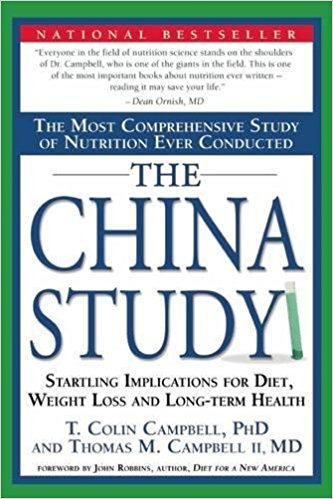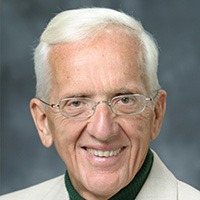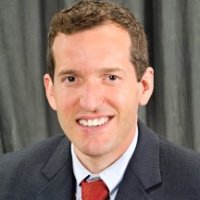The China Study Summary
6 min read ⌚
 MicroSumary: “The China Study” by T. Colin Campbell and Thomas M. Campbell presents the astonishing findings of the China–Cornell–Oxford Project, a two-decade-long observational analysis of the relationship between nutrition and chronic illnesses in rural China. And the conclusions? A whole-food, plant-based diet works wonders; and animal-based proteins cause cancer – and many other bad things.
MicroSumary: “The China Study” by T. Colin Campbell and Thomas M. Campbell presents the astonishing findings of the China–Cornell–Oxford Project, a two-decade-long observational analysis of the relationship between nutrition and chronic illnesses in rural China. And the conclusions? A whole-food, plant-based diet works wonders; and animal-based proteins cause cancer – and many other bad things.
The Most Comprehensive Study of Nutrition Ever Conducted and the Startling Implications for Diet, Weight Loss, and Long-term Health
You want a healthy diet, but don’t know where to start? Who does? Everyone is saying something different about food diets these days.
Fortunately, in “The China Study,” celebrated nutrition expert T. Colin Campbell, PhD, and his son, Thomas M. Campbell II, MD, use the findings of the most comprehensive study on these topics ever conducted.
So, if nothing more, you can be sure that they are not lying.
A reason more to have a more thorough look at what they’re saying.
Who Should Read “The China Study”? And Why?
Most of us eat almost exclusively by instinct. In other words, we only eat food that’s tasty for us and tend to disregard its health effects.
“The China Study” is for those who want to start basing their diet on science, rather than impulse. It’s one of the seminal vegan studies, so vegans are probably already aware of its existence.
Of course, those who are not, are welcomed to read through it and pick up few more arguments in their favor.
For the inevitable discussion the next time your friends come over.
About T. Colin Campbell & Thomas M. Campbell II
 T. Colin Campbell is an American biochemist, one of the world’s most renowned experts on nutrition and health.
T. Colin Campbell is an American biochemist, one of the world’s most renowned experts on nutrition and health.
During the 1980s, he led the first two major observational studies within the China-Cornell-Oxford project.
The experience helped him develop his ideas about the necessity of a plant-based whole-foods diet, which he advocates for ever since.
Campbell is a Jacob Gould Schurman Professor Emeritus of Nutritional Biochemistry at Cornell University.
He has authored few other books, such as “Whole” (2013) and “The Low-Carb Fraud” (2014).
 Thomas M. Campbell II is a medical director at both Highland Hospital and the T. Colin Campbell Center for Nutrition Studies, which he has co-founded with his father.
Thomas M. Campbell II is a medical director at both Highland Hospital and the T. Colin Campbell Center for Nutrition Studies, which he has co-founded with his father.
See more at http://nutritionstudies.org/
“The China Study Summary”
Benjamin Franklin wrote so many smart things you can quote him on almost any topic! “An ounce of prevention is worth a pound of cure” serves the purpose of today’s summary.
And you already know what we’re going to say next, right?
A healthier diet is much more beneficial – not to mention: less expensive – than modern medicine. Speaking of which, as advanced as it is, it still hasn’t made us healthier. Especially in the USA. And we don’t even know what the problem is!
The facts prove this. Since 1970, the health of the average American has considerably worsened, even though the healthcare system now receives about 300 percent more from the country’s GDP than 40 years ago!
We’re not even going to mention cancer (for now). Just take diabetes for example: the rate among those aged between 30 and 39 rose by spectacular 70 percent during the 1990s only!
And, a little-known fact, up to 7 percent of the patients suffer from side-effects, even though they’ve merely listed to their doctor’s instructions!
Now, back to food:
Quite literally, you are what you eat. So, you have to start taking your eating habits a bit more seriously!
Fortunately, T. Colin Campbell (and Oxford and Cornell and China) did that for you about 40 years ago.
So, they conducted a large observational study in rural China, aiming to understand better the correlation between health and diet.
Hence, the book’s title.
Why China of all countries?
For three reasons. First of all, the Chinese society is genetically homogenous. In other words, all Chinese have pretty much the same chance of getting one disease or another.
However, this is not backed by the available data, which shows that the illness rates vary from one region to another by high margins.
And how do we know this?
Well, that’s the third reason. During the 1970s, Zhou Enlai, China’s first prime minister, conducted several cancer studies, which were published in the “Cancer Atlas” and served Campbell and other future scientists pretty well for their study.
And, boy, what a study it was!
It included 65 different Chinese regions, and at least 100 individuals from each, totaling 6,500 people! The scientists regularly took urine samples from each of these people, followed each of these people’s food habits, analyzed their health histories, etc.… No wonder “The New York Times” described the China Study as “the Grand Prix of epidemiology”!
And we bet you’re eager to hear the findings!
We’re eager to share them with you too, but, before that – a little history!
German physiologist Carl von Voit is considered to be the father of modern dietetics. He was the first one to discover how the protein turnover in a person’s body can be measured.
And, he realized – contrary to pervading opinion – that 48g of daily protein intake may just be enough for any human being.
However, he suggested 2,5 times that amount (118g) to be better, because – why not?
Unfortunately, he wasn’t right! Too much of a good thing wasn’t necessarily a good thing.
And this is exactly what the China Study conclusively proved! Chinese regions whose diet was low-fat plant-based lived much healthier lives than those who had traditionally opted for a protein-high animal-based diet.
And there seemed to be a reason for this!
You see, tumors develop from foci, which are in turn created by enzymes, which are primed to become cancerous.
Ironically, them becoming cancerous has nothing to do with carcinogens, and a lot to do with protein intake!
Carcinogens, in other words, are helpless in the absence of certain enzymes. And these enzymes are not present in people with low-protein diet.
And even more!
Animal-based diet helps cancerous cells develop; plant-based diet – even when protein-rich (beans, nuts, soy) – doesn’t. So, there’s a difference between animal-based and plant-based proteins.
Do we need to say anything more?
Stay away from meat as much as you can! Your life depends on it!
Key Lessons from “The China Study PDF”
1. The China Study Is a Study of Your Food Habits
2. What Indian Rats Can Teach You
3. Be a Vegan. Science Says So.
The China Study Is a Study of Your Food Habits
The China Study was conducted in the 1980s by two top universities (Oxford and Cornell) and the Chinese government. How does it affect your food habits?
Well, for one, it conclusively proved that people who eat plants are significantly healthier than people who eat animals. And, secondly, it stipulated the reasons why this might be true.
And the reasons are more related to human biology, than the Chinese rural environment!
What Indian Rats Can Teach You
The China Study discovered that animal-based proteins are bad for your health. And that plant-based diet helps your body fight carcinogens.
The findings were further backed by a rat study conducted in India. It concluded that rats exposed to aflatoxin (which causes liver cancer) respond differently to the carcinogens, and that this response is diet-dependent.
Namely, rats who were fed with animal protein were more likely to develop cancers than rats on a low-protein diet, after being exposed to the same amount of aflatoxin.
And it gets even more frightening!
The rats eating animal proteins were more likely to develop cancers than those not eating them, even when the former ones received much lower doses of aflatoxin than the latter!
Be a Vegan. Science Says So.
And, it’s not only meat. So, being a vegetarian is not enough.
For example, high-fat diets result in higher estrogen levels in the body. And these help breast cancers. So, you’ll be better off without milk and butter as well.
Now, how can we put this in a simpler manner? Oh, that’s right:
just try to be a vegan!
Like this summary? We’d like to invite you to download our free 12 min app, for more amazing summaries and audiobooks.
“The China Study” Quotes
Americans love to hear good things about their bad habits. Click To Tweet Everything in food works together to create health or disease. The more we think that a single chemical characterizes a whole food, the more we stray into idiocy. Click To Tweet Nutrients from animal-based foods increased tumor development while nutrients from plant-based foods decreased tumor development. Click To Tweet The distinction between government, industry, science and medicine have become blurred. Click To Tweet Protein during promotion trumps the carcinogen, regardless of initial exposure. Click To TweetOur Critical Review
Quite possibly, most of the vegans you know are, either implicitly or explicitly, influenced by “The China Study.” It was one of the books which made veganism popular.
In fact, just few years after the book was first published, the European Parliament defined the word “vegan” in terms of its food labels usage.
True, there were few other books and documentaries which contributed to the mainstream acceptance of vegan diet, but none was as cited and reread as “The China Study”.
CNN’s Dr. Sanjay Gupta said it best when he wrote, back in 2011, that Campbell’s findings “changed the way people all over the world eat.”
And they still do! Which means, regardless of whether you are a vegan or not, “The China Study” is not a book you’d like to overlook.
If even half of it is scientifically true – than “The China Study” may even save your life!
Emir is the Head of Marketing at 12min. In his spare time, he loves to meditate and play soccer.







